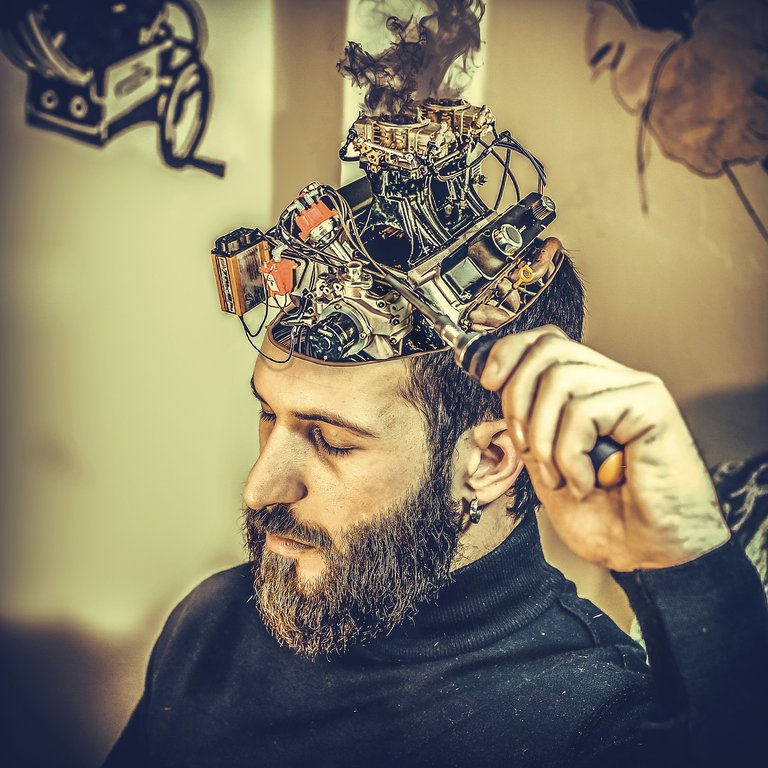Having established what prosody is in my last article on languages, today I would like to talk about what to do to improve prosody in your language of choice. However abstract the concept might seem, I believe there is some structure as to how to make your prosody better and get closer to native speaker's level.
Record yourself
There is something uncomfortable about recording yourself on a voice recorder and listening to your own voice, I am fully aware of that. However, to my mind, this is the best way to monitor and improve one's prosody. Ideally, one should present a language teacher with the recording and get appropriate feedback on it. Playing it to native speakers with no background in linguistic might not be your best bet, as most people have little to no idea about how their language works. You need a person that will articulate your weak points and come up with solutions. All in all, the recording should serve as a subject to diagnose your prosody lapses.

Install New OS for Your Mind
Switching between languages may be compared to switching between operating systems, for each language has its own 'software' which it is based on. It is essential to be aware of this phenomenon so as to avoid calques, or root-for-root translations. Loan translations are automatic and in many cases habitual for foreign language speakers and realization of their fallacy is a leap towards better prosody of L2. We can even go further and compare languages to different musical instruments or even pieces of music, each of them having their pitch contours and unique rhythmic patterns. Fitting in those is the key to not sounding foreign to your L2 native speakers. The concept is broadly expanded by a linguist and polyglot, Stuart Jay Raj, in this excellent TEDx presentation.
Learn Two Foreign Languages Simultaneously
I believe that nothing will make you more aware of the existence of different linguistic operating systems than learning two or more foreign languages at the same time. Ideally, one should choose languages from close language families, which will facilitate learning their prosody by comparing and contrasting the languages. I think it also gives one an enormous boost of confidence when speaking foreign languages, which I believe is necessary to reach proficiency.
Develop Muscle Memory
Speaking a language is more physical than it might seem and, to be more precise, it is all in the powers of our speech apparatus to produce language. Observing and analysing native speaker's physical responses to their language production is the key step to getting closer to their fluency. Consequently, it takes dozens of hours of practise to develop muscle memory for new foreign sounds. Furthermore, one should also pay attention to body language of L2 native speakers which reinforces certain phrases and meanings in their language. Installing a new linguistic system for our minds, as well as our bodies is indispensable to master a foreign language.

Transcribe
Transcription is arduous work and oftentimes ends up with frustration and failure. However, going through the process and spending hours trying to work out what native speakers of L2 said in a particular recording of news, movie or a TV show will certainly pay off and, in the long run, will boost one's prosody. Ideally, a given transcription should be checked by a language teacher, practised and recorded by a learner, aiming at perfect imitation of the recorded speaker.
Immerse Yourself in Language
In my previous series of articles on learning Thai language without ever going to Thailand I presented my standpoint considering language immersion in L2's natural environment. Even though I think that living in your L2's environment is no guarantee to actually learning the language, when properly approached it might have a crucial impact on your prosody. Being in your L2's natural environment and making a continuous and conscious effort to learn it, might definitely benefit your linguistic fluency. However, in cases of most L2 learners this is impossible for various reasons and one has to be a bit more creative to immerse oneself in the language. Thanks to technology and the Internet it is a fairly easy task nowadays and every learner should approach this in a way that fits his or her style of learning. The goal is to create an environment that teaches you the language all the time, without you even noticing or being fully aware of it.
I hope this post might help some of you to approach learning foreign languages from a new perspective. All your feedback and comments are welcome, it would be great to have some discussion and exchange our experience of learning languages. See you in my next post.
Earworm
Pictures by https://pixabay.com
Again, great article. Immersion and practice are key. I like the idea of recording yourself too. Thanks!
Cheers, I'm glad you liked it!